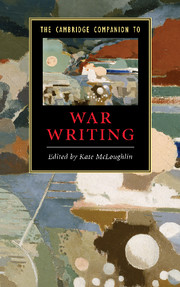6 - The Bible
from Part II - Influences
Published online by Cambridge University Press: 28 January 2010
Summary
The presence in the Western world of a Christian tradition as a continuous background, albeit a vaguely defined one without a univocal meaning, is not an element for leveling out conflicts; on the contrary, it is (or has become) a constitutive factor in promoting them, and can exacerbate them.
Almost from its beginning the Bible deals in conflict and is soaked in blood. The enmity foretold between Eve and the serpent (Genesis 3:15) is translated by John Milton to the cosmic battle between the “Son of God Most High,” the fruit of Mary's womb, and the Serpent who can expect only “mortal pain.” Though traces remain in the Hebrew Bible of mythological stories of primeval warfare between the gods and the cosmic battle between good and evil, these are generally subsumed under the conditions of the Holy War in which Yahweh, the Lord of Hosts, fights for and at the head of his people against their enemies. Such imagery is later translated to the war of the Christian Church against the world, the flesh, and the devil under the banner of Christ. Blake, in “The Everlasting Gospel” (1818), has Jesus seize the “Spiritual Prey” and thus “he bound Old Satan in his Chain.”
The great song of Moses in Exodus 15:1-21 (with the briefer song of Miriam to accompany dances of victory) follows the defeat of Pharaoh's army in the Red Sea and, with its parallels in the Psalms, celebrates the triumph of God as warrior-king.
- Type
- Chapter
- Information
- The Cambridge Companion to War Writing , pp. 61 - 70Publisher: Cambridge University PressPrint publication year: 2009

